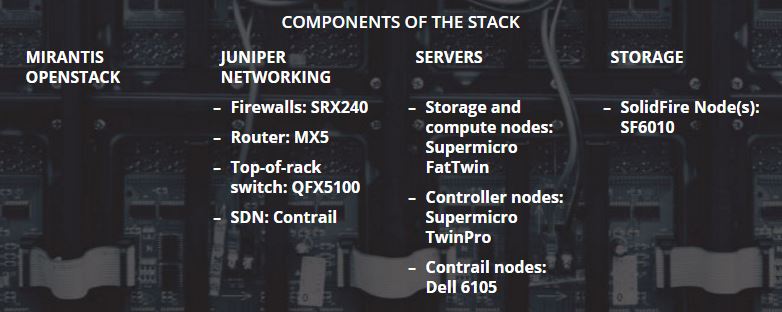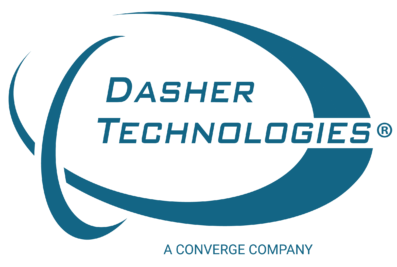By Chris Saso, EVP Technology & Isaack Karanja, Senior Solution Architect
Dasher Technologies teams up with Mirantis, as well as a few of our IT infrastructure partners to create an OpenStack private cloud that we call OSPod. OSPod is a fully functional and documented public-facing OpenStack environment that our clients can have access to in order to learn more about OpenStack. This brief blog, along with our OSPod website, will educate you on what OSPod is, what it can be used for, what its benefits are to your organization and how to work with Dasher to start an OpenStack project of your own.
The Dasher OpenStack Background
Dasher started our own OpenStack journey in early 2014 and wrote about it in this blog post. Later in 2014, we teamed with Piston Computing (later purchased by Cisco) and wrote about our experiences bringing Piston to market. We even did a cool video about how to install OpenStack in less than 10 minutes. Since that time, we have continued to educate ourselves and our clients about the benefits of OpenStack for private cloud environments. About a year ago in 2015, we created a graphic of the OpenStack Ecosystem that highlighted the current leading players in the space such as HPE, Mirantis, Piston (Now Cisco), and of course, Red Hat.
About OSPod
The integrated stack combines top technologies in software-defined and hyper-converged infrastructure, network function virtualization (NFV) and OpenStack software to give you the scale, agility and efficiency of a public cloud in your own secure data center. Hear directly from the experts Isaack Karanja, Dasher Solution Architect, and Ryan Day, Mirantis Solution Architect, in this introductory video to learn more about it. We won’t delve into all of the details here because there is great documentation on the site itself. For an overview you can check out our datasheet.
Who It’s For
OSPod is designed for IT teams that need greater agility, scale and efficiency from their infrastructure yet can’t go all-in with a public cloud. It’s particularly ideal for organizations looking to adopt DevOps and continuous integration and delivery methodologies for applications. OSPod is a scalable OpenStack private cloud solution that can be configured to your workloads, budget and security needs.
The Benefits
- Customization – When we help you implement your own OSPod it is customized to your workload, budget and security and compliance requirements.
- High-Performance Block Storage – OSPod leverages built-in Ceph for storage or SolidFire for high-performance, resilient block storage that fully integrates with the OpenStack API.
- Network Virtualization – OSPod goes beyond the typical OpenStack cloud with advanced network function virtualization capabilities.
- Cloud-In-A-Box Option – Dasher will fully build, integrate and deploy an OSPod solution just for you, complete with hardware, software and training services.
- Scalability – Easily scale your OSPod modularly by adding storage and compute nodes.
- The Dasher Value Add – Dasher wraps your OSPod solution with complete services from network assessments, solution architecting, team transition and adoption and more.

What’s next?
When you are ready to sign up and try OSPod, please contact us. Remember that our test-bed environment of OSPod is for your team to learn how you might use OpenStack. Think of OSPod as a PoC (Proof of Concept) in a box that you can use from the comfort of your office – without having to spend several months setting up a test environment. It is not an environment on which you should run production workloads or for your team to run your business as we do not currently offer it as a managed service. When you are ready to get rolling with your own OSPod OpenStack private cloud, the same Dasher engineers that put together our environment can come and help you get started!
Additional Reading:
- OSPod Data Sheet
- Video: OSPod
- Video: How to Install Production Grade Openstack in under 10 minutes
- OpenStack Ecosystem
- OpenStack for Private Cloud
- Dasher Joins Forces with Piston Cloud (Now Cisco)
For more information about OSPod or if you’d like to try it yourself, please contact Dasher ([email protected]) and ask for Chris Saso or Isaack Karanja to learn more.

